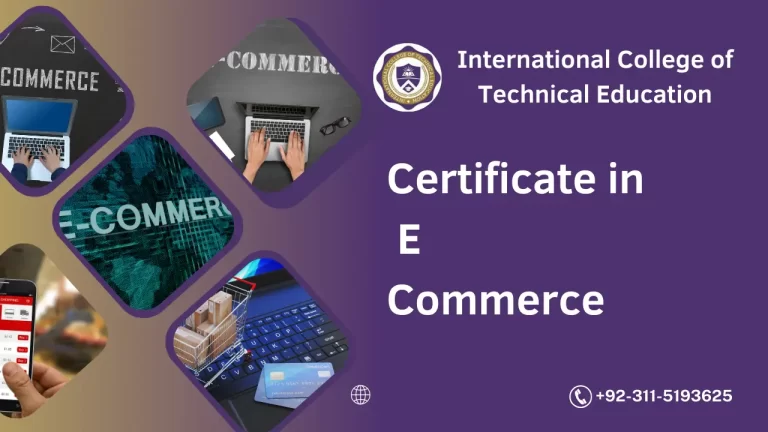In today’s fast-paced digital world, high-speed internet and reliable communication systems have become essential for both individuals and businesses. Fiber optic technology is at the core of this global connectivity revolution. With growing demand for fiber networks in Pakistan and worldwide, skilled technicians are needed more than ever. The Fiber Optic Course in Lahore is a valuable opportunity for those seeking a career in telecommunications and networking.
The Fiber Optic Course is a specialized technical training program focused on the installation, splicing, testing, and maintenance of fiber optic cables. Designed for beginners as well as professionals looking to upgrade their skills, the course offers a mix of theoretical knowledge and hands-on practical experience.
Course Overview
The course introduces students to the principles of fiber optics, the structure and functioning of optical cables, and the techniques used in deploying fiber networks. Practical sessions include splicing, cable laying, fault detection, and network setup using modern tools and equipment. The training also covers industry standards and safety protocols, preparing learners for real-world fieldwork.
Study Units
The typical curriculum includes the following key study areas:
- Introduction to Fiber Optic Technology
Understanding the basics of light transmission, bandwidth, and fiber communication. - Types of Fiber Optic Cables
Single-mode, multi-mode, armored, and drop cables—uses and characteristics. - Fiber Optic Tools and Equipment
Overview and practical use of splicing machines, OTDRs, cleavers, strippers, and power meters. - Splicing Techniques
Fusion and mechanical splicing methods and their practical applications. - Cable Laying and Installation
Techniques for outdoor and indoor installations, including ducting and aerial deployments. - Fiber Optic Testing and Troubleshooting
Measuring losses, detecting faults, and performing system tests using standard equipment. - Connectorization and Termination
Preparing and terminating fiber cables for reliable network connections. - Safety and Best Practices
Health, safety, and environmental precautions in fiber optic installation and maintenance.
Learning Outcomes
Upon successful completion of the course, students will be able to:
- Understand the structure and function of fiber optic systems.
- Install, splice, and terminate fiber optic cables professionally.
- Use testing tools such as OTDR and power meters to ensure system performance.
- Diagnose and repair faults in fiber networks.
- Follow industry safety standards and best practices during installations.
- Work independently or in a team on telecom or IT infrastructure projects.
Course Benefits
- High-Demand Skill: Fiber optic technicians are in demand across telecommunications, internet service providers, and infrastructure development sectors.
- Practical Training: Hands-on experience with real tools and equipment ensures job readiness.
- Certifiable Expertise: Graduates receive a certificate that enhances their employability.
- Global Opportunities: Skills are relevant for jobs in Pakistan, the Middle East, and beyond.
- Career-Focused Learning: Training is aligned with current market requirements and technologies.
Who Is This Course For?
This course is ideal for:
- Matric or intermediate pass students looking for a technical career.
- Electricians or telecom workers aiming to specialize in fiber optic systems.
- IT or networking professionals seeking additional qualifications.
- Job seekers interested in overseas employment.
- Individuals planning to start their own telecom services business.
Future Progression
After completing the Fiber Optic Course, graduates can explore several progression opportunities:
- Advanced Courses in Network Design or FTTH (Fiber to the Home)
- Certification Programs such as FOA (Fiber Optic Association) Certified Technician
- Employment with ISPs, telecom companies, and construction firms
- Entrepreneurship in fiber installation and maintenance services
- Work abroad in countries with large-scale telecom expansion projects
With continued experience and additional training, professionals can move into supervisory, project management, or fiber network engineering roles.
The Fiber Optic Course in Lahore provides an excellent opportunity for individuals looking to enter a dynamic and growing industry. With digital connectivity becoming a cornerstone of modern life, the need for qualified fiber optic technicians will only increase. Whether you’re starting from scratch or upgrading your skills, this course is a smart investment in your future.







